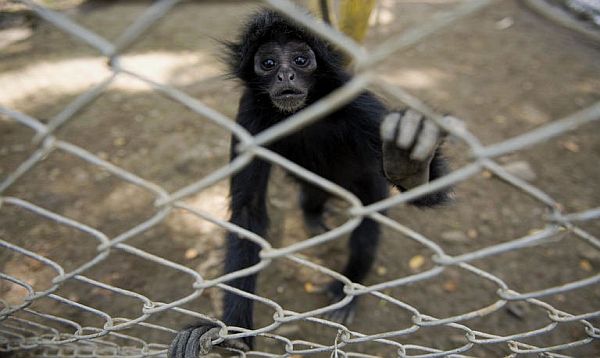Mexico City - When agents of the Federal Attorney's Office for Environmental Protection (Profepa) arrived at Sonora market in Mexico City last month, some merchants uttered death threats, others hid the animals in the attics of their stores, and those who tried to escape got trapped, because the market's exits were blocked by authorities. In five minutes the agents rescued dozens of clandestine parrots, parakeets and reptiles.
Along with drug trafficking and arms sales, wildlife trafficking, including endangered species, is one of the world's most lucrative crimes, according to Interpol.
As in the two other clandestine business, the benefits are exorbitant. A bighorn sheep costs about five million pesos (US$326,106) on the international market, the same as almost three kilos of high purity methamphetamine in the United States, while a spider monkey costs 150,000 pesos (US$9,783) on the black market, the same value as ten AK-47, the world's best selling rifle.
 |
"For many threatened, rare or vulnerable species, wildlife trafficking can trigger their disappearance," said Adrian Reuter, TRAFFIC's Representative in Mexico.
From 2007 to 2014, Mexico's Attorney General's Office (PGR) rescued 510,147 animals in 21 states, while the Profepa rescued 95,503 more during the same period.
Yucatán is the state with the largest number of animal rescue operations (92%), followed by Sonora and Quintana Roo.
Guerrero supplies birds and reptiles; Campeche parrots, monkeys and sea cucumbers, along with Baja California, while Chiapas, Oaxaca and Veracruz are the states where most parrots are captured.
In Nuevo León, experts say that the biggest problem is the illegal trafficking of white-tailed deer and bighorn sheep.
Mexico City and the State of Mexico work as warehouses where almost every animal can be found: turtles, sea cucumbers, iguanas, fish, snakes, parrots, macaws, finches, tarantulas, crocodiles, rabbits, toucans, hawks, eagles, monkeys, jaguars, deer, tigers, lions, owls and scorpions, among others.
Some of the most valuable species are the yellow-breasted toucan, deer and elks, that cost 600,000 pesos (US$39,125); macaws, which cost up to 500,000 pesos (US$32,603) and yellow-headed parrots, sold for 300,000 pesos (US$19,562).
Original article


